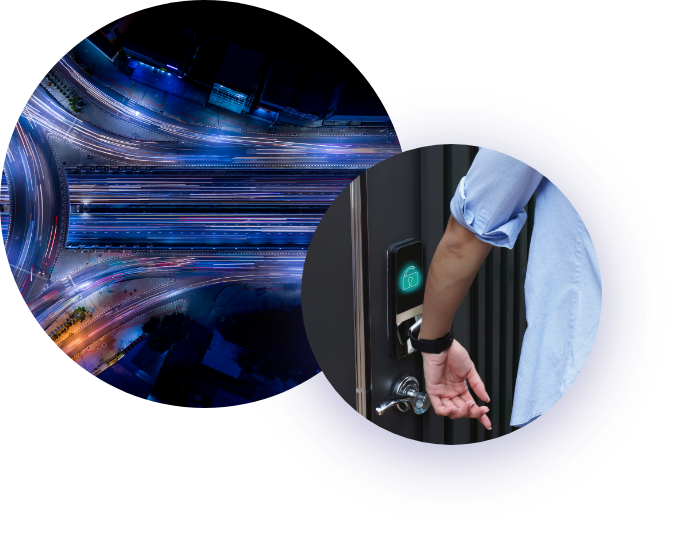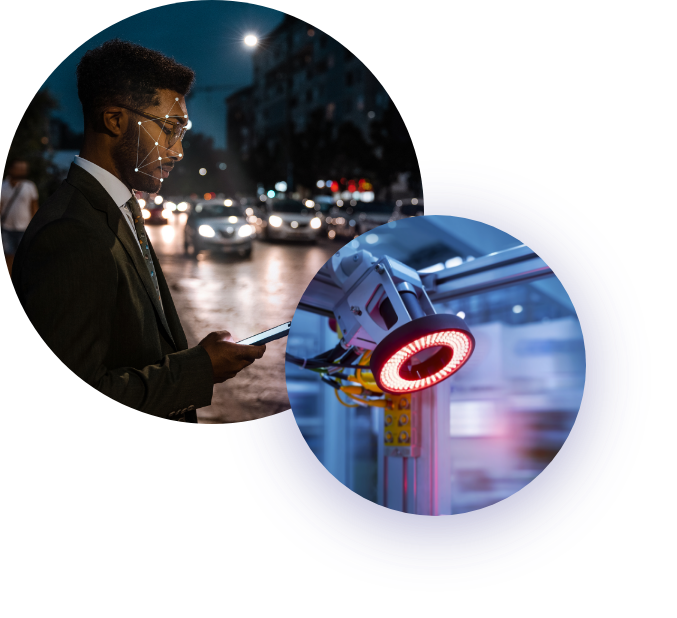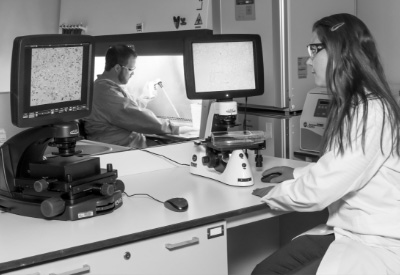
In the ever-shifting technological landscape, intelligent sensors are becoming an increasingly common addition to microelectronic devices across industries. These sensors are used across a variety of sectors, including space exploration and the automotive industry. They are setting new standards for how microelectronic devices interact with other device components and the world around them.
Understanding Intelligent Sensors
Intelligent sensors, sometimes called smart sensors, are small electronic devices with advanced information collection and/or transmission capabilities that surpass those of traditional sensors. Unlike their conventional counterparts, intelligent sensors can process data internally, execute actions based on received data, and communicate with other devices or systems directly or remotely.

The Power Behind Intelligent Sensors
Given the increasingly important role intelligent sensors play in a variety of microelectronic devices, there is a substantial need for power sources that can continuously power intelligent sensors, especially in remote and extreme environments where replacement is difficult or impossible. NanoTritium™ batteries offer several key advantages relevant for powering intelligent sensors:
Safety
Tritium betavoltaic batteries are safe for commercial use and don’t emit any radiation, preventing any worry about radiation penetrating human skin.
Efficiency
NanoTritium™ batteries operate at lower temperatures compared to other radioisotope batteries, ensuring consistent power output.
Lifespan
NanoTritium™ batteries can operate for 20+ years. This extraordinary lifespan opens several technological applications in difficult environments, such as outer space, without needing to be replaced.
Versatility
NanoTritium™ batteries can be tailor-made and custom-ordered to meet various microelectronic needs, making them adaptable to specific applications.
Low maintenance
NanoTritium™ batteries require minimal maintenance or replacement, reducing overall operational costs.
Resistance to extreme conditions
NanoTritium™ batteries can endure extreme temperatures ranging from -50º C to 150º C, as well as intense radiation, launch vibration, and more. This ensures their reliability in harsh environments and makes them perfect for powering intelligent sensors in challenging environments like outer space or creating robust communications security (COMSEC) solutions that can withstand battleground stressors.
Advantages and Disadvantages of Smart Sensors
As with any technology, intelligent sensors come with their own set of advantages and disadvantages:

Notable Advantages
Real-time data processing: Intelligent sensors can process data locally, reducing latency and enabling quick decision-making.
Efficiency: Intelligent sensors optimize resource usage by transmitting only relevant data, conserving power and bandwidth.
Autonomy: Intelligent sensors can operate independently, reducing the need for constant human intervention.
Adaptability: Intelligent sensors can be programmed and reprogrammed for various applications, making them versatile.

Notable Disadvantages
Complexity: Although they boast far superior capabilities, intelligent sensors are more complex and expensive to develop and maintain compared to traditional sensors.
Security concerns: The increased connectivity of intelligent sensors opens them up to potential cyber threats, necessitating strict adherence to safety protocols.
Notable Applications of Intelligent Sensors
Space Exploration
In the vast expanse of outer space, intelligent sensors are indispensable. They can be used to facilitate autonomous navigation, monitor spacecraft conditions such as temperature and radiation, enable precise data collection, and more.
Military Defense
The defense industry relies heavily on intelligent sensors for surveillance, reconnaissance, and threat detection. These sensors enhance situational awareness, providing real-time information to make informed decisions in high-stakes environments.
Automobile Industry
Modern automobiles heavily rely on the incorporation of advanced sensor systems, including collision avoidance systems and adaptive cruise control. These systems enable vehicles to sense their surroundings, communicate with other cars, and even assist in autonomous driving.
Internet of Things (IoT)
The IoT ecosystem thrives on intelligent sensors. These sensors are increasingly embedded in modern smart homes, wearable devices, and industrial machines, enabling seamless connectivity and data exchange. They can be used to monitor environmental conditions, control appliances, optimize energy usage, and more.
Healthcare
In the medical field, intelligent sensors are used for remote patient monitoring, wearable and implantable medical devices, and diagnostic equipment. By accessing and responding to real-time patient data, intelligent sensors can improve patient care and reduce mortality rates for a variety of diseases and conditions.
Food Packaging
Intelligent packaging sensors are employed to monitor perishable food items, ensuring they are safe to consume when delivered after potentially lengthy shipments.
Extreme Environments
In addition to outer space, smart sensors can be used to monitor all sorts of extreme environments here on Earth, such as monitoring pressure during deep-sea exploration or the reaction processes within nuclear reactors.

Power the Future With City Labs’ Revolutionary NanoTritium™ Batteries
City Labs’ NanoTritium™ batteries have emerged as a strong contender for powering intelligent sensors, even across extreme conditions. These batteries leverage the principles of betavoltaic conversion and radioactive beta decay to create long-lasting, sustainable power sources for low-power microelectronic devices.
Step into the future of microelectronics by partnering with City Labs and harnessing the unparalleled power of NanoTritium™ batteries to fuel your intelligent sensor needs. Our batteries offer unmatched safety, efficiency, and longevity, making them the ideal choice for powering smart sensor technology in most any environment. Contact us today to learn how we can help redefine your low-power sensor capabilities.
The Nuclear Battery Company With a Vision
Ready to power your next innovation or learn more about our technology?
Contact Us Today




